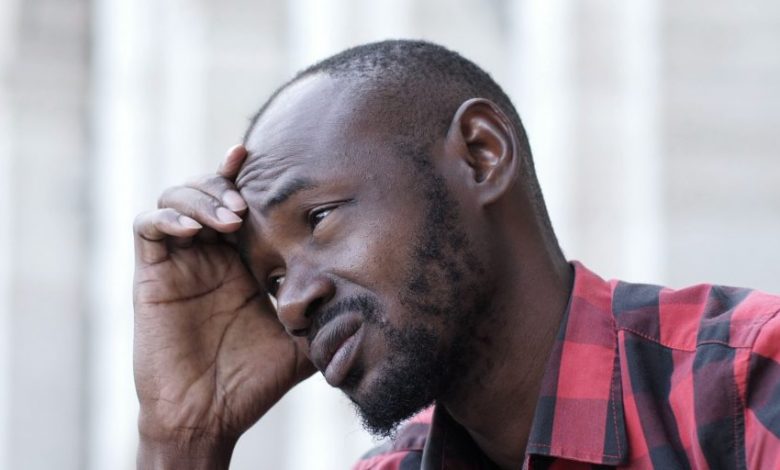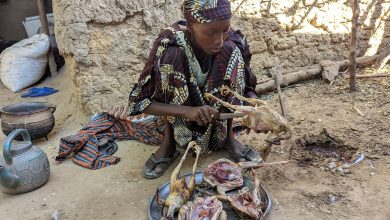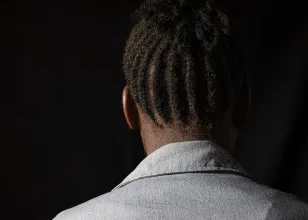COVID-19: Protect Your Mental Health – Expert Tells Nigerians

Staying indoors for several weeks as a result of the ongoing COVID-19 crisis can take its toll on people’s mental health, making them feel distressed.
Henry Okafor, a teacher said that he was lost for the first few days of the lockdown.
“It was like I was betraying myself. I felt lazy and very unproductive. I started judging myself for not working,” he said.
For Ummu Abdalla, a mother of four, her biggest concern is protecting her children from the bad news swirling around about the virus.
“It is stressing me out how I have to tell my kids that the world is going through a crisis.
“I don’t want them to know how bad it is but I am stressed myself and I don’t know how much longer I can do this,” she said.
Jennifer Ozi, a nurse and mental health expert volunteer for Mentally Aware Nigeria Initiative (MANI), a non-governmental organisation that raises awareness on mental illnesses, observed that the pandemic will no doubt hit hard because humans are naturally social creatures.
“It is okay to panic,” she said, and added: “but if not managed properly, self-isolation for a long period can also lead to feelings of helplessness, uncertainty about the future, or even eventually trigger Post-Traumatic Stress Disorder.
During a tweetchat organised by HumAngle on Monday, Ozi shared tips that can be adopted by people in various circumstances to help them keep fit mentally.
Since exposure to large volumes of negative information can heighten anxiety, she advised the populace to stick to official sources, such as the Nigeria Centre for Disease Control (NCDC), for Information.
“Restrict your exposure to the news to once or twice daily. Write down your worries, if you can. It helps to pinpoint realistic concerns, as against having jumbled thoughts running around in circles. Try to take action. Make plans,” she said.
Ozi added: “Focus on the things you can control, like maintaining healthy respiratory hygiene and washing your hands regularly and avoiding crowds and all non-essential travel.
“Try to sleep well. Be deliberate about protecting your physical health.
“Look for opportunities to be in control and create stimulation. Try to retain a structure or routine to your day.
“Keep your mind active – play games such as Sudoku; draw. Look for apps that allow you play online games with friends and family or karaoke with them. Keep your body active – exercise indoors.
“Be deliberate about reaching out for emotional support from family and friends. Look for opportunities to give back to your community virtually.”
Ozi advised parents to share facts about the disease with their children in a way that they could understand and also teach them healthy hygiene practices.
She also encouraged those living alone to eat regularly, communicate with family and friends through online platforms, and remember to bathe and work out regularly.
“Be deliberate about doing something you enjoy: reading a book, playing a game, cook a new meal or bake.
“Be kind to yourself. You should do as much or as little as you can per day. There is no pass mark for how much you “achieve” during this period. You surviving is enough marks,” she emphasised.
Ozi said healthcare and frontline workers should watch out for symptoms of Secondary Traumatic Stress and seek help when they noticed them.
They should also spend time with friends, check in with colleagues and not forget to take needed breaks from work, she said.
“Ask for help if you feel overwhelmed or concerned that COVID-19 is affecting your ability to care for your family and patients as you did before the outbreak,” she added.
“Allow time for you and your family to recover from responding to the pandemic and do not hesitate to reach out for help when it feels overwhelming.”
She stressed that it was normal to feel overwhelmed and people need to constantly remind themselves that the isolation was a necessary temporary measure to slow down the spread of the virus.
“It is wise to be concerned about the outbreak of coronavirus but try to remember that medical, scientific and public health experts around the world are working hard to contain the virus, treat those affected and develop a vaccine as quickly as possible.”
Support Our Journalism
There are millions of ordinary people affected by conflict in Africa whose stories are missing in the mainstream media. HumAngle is determined to tell those challenging and under-reported stories, hoping that the people impacted by these conflicts will find the safety and security they deserve.
To ensure that we continue to provide public service coverage, we have a small favour to ask you. We want you to be part of our journalistic endeavour by contributing a token to us.
Your donation will further promote a robust, free, and independent media.
Donate HereStay Closer To The Stories That Matter




